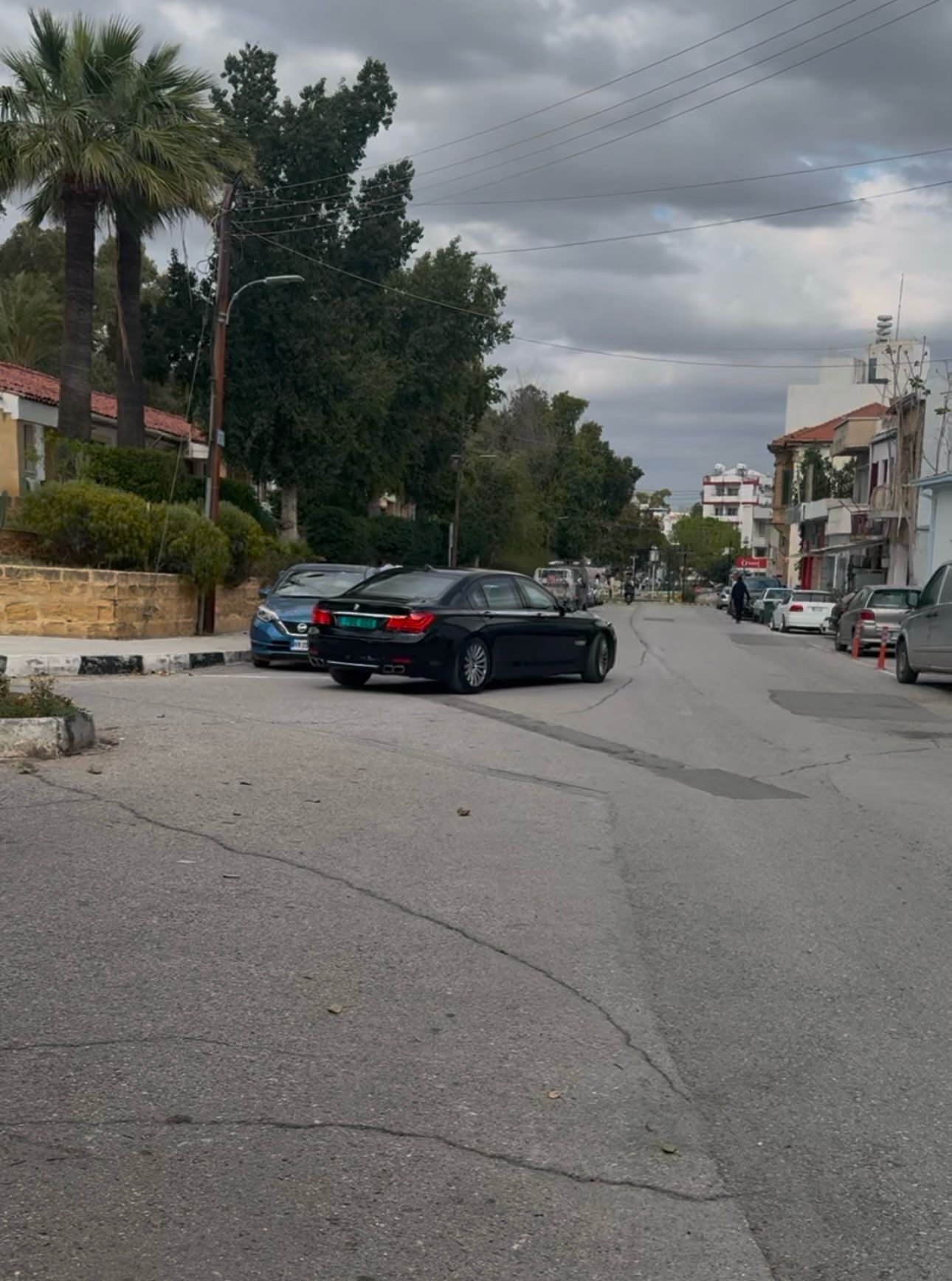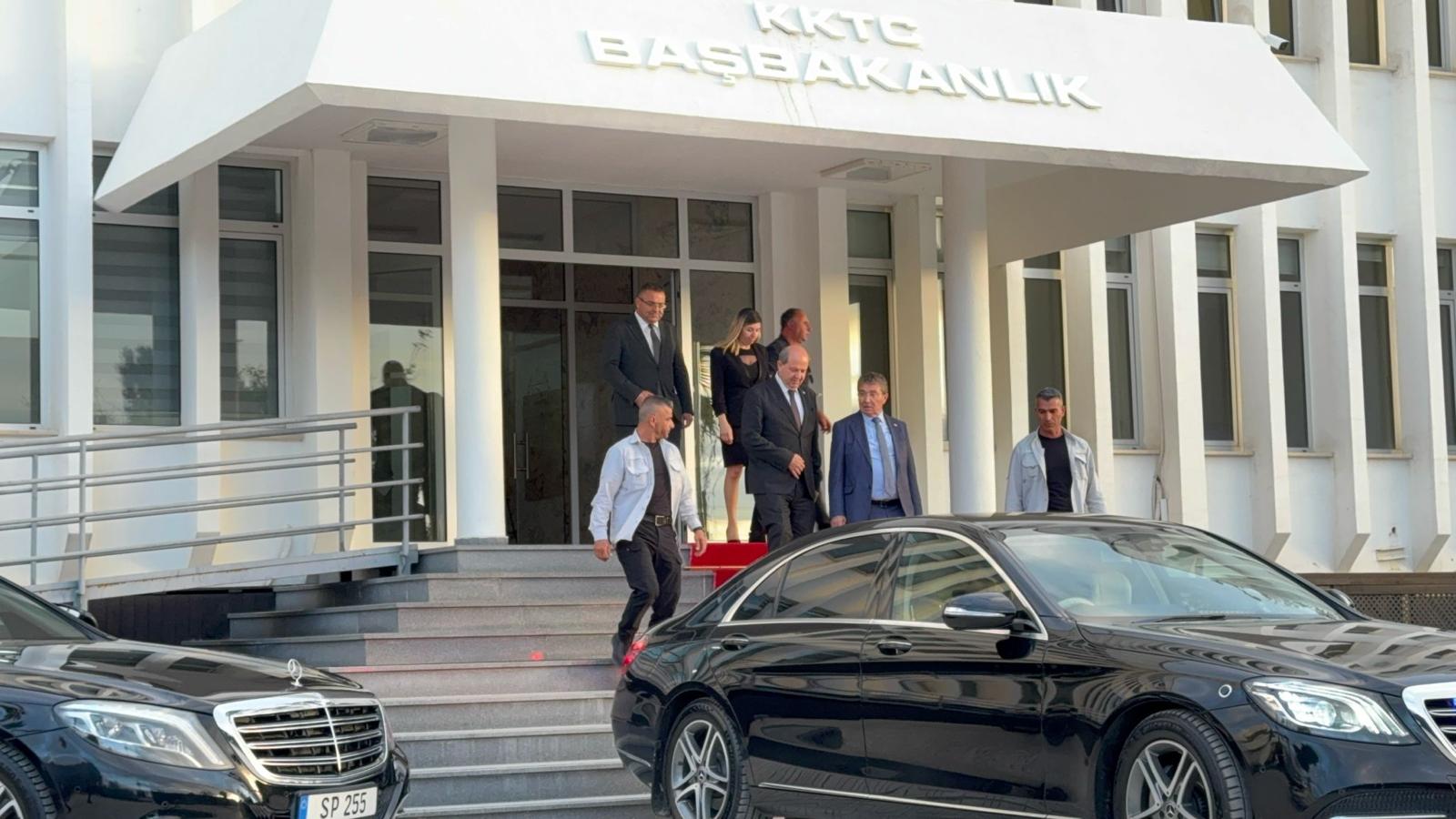Turkish Cypriot leader Ersin Tatar late on Thursday night denied that the subject of a behind-closed-doors meeting he had held with Turkish ambassador Ali Murat Basceri and the north’s ‘prime minister’ Unal Ustel was the attempt to legalise the wearing of hijabs by schoolchildren.
Tatar, Basceri, Ustel and ‘deputy prime minister’ Fikri Ataoglu had attended a meeting at Tatar’s official residence in northern Nicosia, with rumours swiftly abounding that the four had met to discuss the matter of hijabs, which has engulfed the Turkish Cypriot news cycle in recent weeks and has been dubbed by some local media as the “headscarf crisis”.
However, in an uncharacteristic official denial, Tatar released a statement late on Thursday night saying that the meeting had actually centred around a planned visit to the island of Turkish Vice President Cevdet Yilmaz and the planned holding of Turkey’s aerospace and technology festival Teknofest at the north’s Ercan (Tymbou) airport next month.
He added that the meeting had also concerned the status of the construction of Tatar’s new official residence and other ‘government’ buildings in Ayios Dhometios.
“The association of the statements in several press outlets regarding the meeting in question with some current developments is completely imaginary and has no connection with the facts,” he said, adding that on the matter of hijabs, “cabinet will make the most correct decision”.
Several news outlets had on Thursday carried the story that the meeting at Tatar’s official residence had centred around the legalisation of hijabs, with many reporting that a subsequent meeting of the north’s cabinet at Ustel’s office later that evening, which was also attended by Tatar, had also been held to discuss the same subject.
Tatar, Basceri, Ustel, and Ataoglu had remained inside Tatar’s residence for around four hours before Ustel and Ataoglu travelled to Ustel’s office, soon followed by Tatar. The cabinet meeting then lasted for two hours.
No statements were made to the press before or after either meeting.

Turkish Cypriot Nicosia mayor Mehmet Harmanci was among those to react to the rumours, saying, “the presence at the table of Tatar, who claims equal sovereignty with his six-octave voice at every opportunity, would probably please Christodoulides more than anyone”.
“When the time comes, no one should feel sorry for this strange structure which prefers to talk to everyone except the Turkish Cypriots and say, ‘but they are good people’,” he added.
Earlier this week, Tatar had demanded that legal action be taken against teachers who “disturbed our peace” during earlier protests, saying that he would meet with Turkish Cypriot police chief Kasim Kuni and chief public prosecutor Sarper Altincik and “request that legal steps be taken”.
Teachers had staged a protest outside the Turkish embassy in northern Nicosia last week, with trade unions pointing their fingers at the Turkish embassy as what they believed to be the source of the amendment which briefly legalised the wearing of hijabs in schools in the north.
The ruling coalition had initially legalised the wearing of hijabs in schools midway through March, but faced a fierce backlash from teachers, the majority of whom are staunchly secular, before withdrawing the amendment on the morning of the protest at the embassy.
Teachers were nonetheless keen to show their displeasure at the amendment and their view that the embassy had played a role, with some even believing it was put down to deliberately sow division in Turkish Cypriot society.
At the protest, Cyprus Turkish secondary education teachers’ trade union (Ktoeos) leader Selma Eylem called on ambassador Ali Murat Basceri to “go home”, with footage of her speech now having gone viral in Turkey, where political tensions are heightened for separate reasons.






Click here to change your cookie preferences